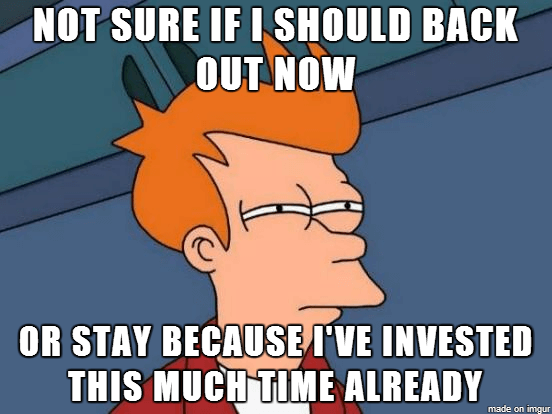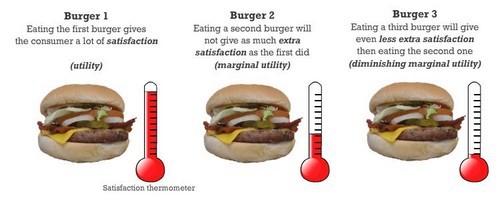Demystifying Economics for Students
 Each year when I am tasked with introducing my subject to a new, upbeat batch of young students, typically, the first question I ask is what do they think economics is about.
Each year when I am tasked with introducing my subject to a new, upbeat batch of young students, typically, the first question I ask is what do they think economics is about.
The usual answer is– it is a study of the economy, of course. Some say it is a study about the use of money. Some believe it teaches them management of their finances and will enable them to invest in the stock market and become richer!
While none of the answers may be entirely incorrect, they are at best, incomplete and miss out on the most interesting aspect of the subject – the ordinariness of it. A more precise and complete definition would be that
economics is nothing but the study of the choices we make in the presence of scarcity of resources.
The scarcity makes it critical to prioritize and requires us to distinguish the needs (absolutely essential for survival) from the wants (those that enhance our comfort level). The subject is thus, deeply embedded in our daily routines and our unique habits. This makes each one of us a living inimitable economic puzzle!
Economics in Everyday Life
A student peering over the details of an important concept while only glancing through the others a day before an exam, is dealing with the scarcity of the resource – time and thus making his/her choice to revise accordingly.
A travel itinerary is a working plan to focus on certain aspects is a way of prioritizing within the constraints of time, in addition to the available budget.
At the start of a busy day, a doctor takes an account of the patient load and may prioritize the more serious patients followed by the less critical ones – an essential exercise of choice made in the presence of scarcity, of not just time but also the hospital resources, the available staff, equipment and cost constraints– a grave daily dilemma the emergency department of any hospital goes through.
This boils down to the fact that we are all practicing economists already! We are applying the subject unknowingly, by ranking our preferences and taking a decision accordingly since we know we can’t have them all (due to scarcity).
This is as valid for buying a car after extensively comparing their features to making investment decisions on debt or/and equity after due thought, to choosing some people over the others to spend our limited time with!
It is all a fundamental aspect of choice made in the presence of various alternatives and a lack of resources to have them all. A discussion around this characteristic of the subject lets my students understand that economics is an ‘ordinary’ subject, strongly rooted in our daily lives.
Making Students Better Decision Makers with Economics
Over the course of my classes, I encourage my students to pick instances where they can explain their dilemmas/decisions better through use of economic concepts and terminologies.
Here are some interesting examples by my students
Investing in friendship, a sunk cost? How?
In economics, it is believed that this facet should ideally not be considered in making future decisions – a mistake we often make. A student once pointed out how he had been investing in a childhood friendship which had now become sour and his effort to revive it was mostly one-sided. All this in the memory of the past 12 years of joyful association with his friend and personal investment of the time and energy he had undertaken.

It led to an interesting discussion about how past commitment of these resources was today a sunk cost and should be avoided in the process of logical decision-making. It was best to move on and choose to spend one’s valuable resource on people and relationships that are more gratifying and mutually beneficial.
Same Dinner 3 Days in a Row?
Another concept that comes up often is the law of diminishing marginal utility – which states that all else equal, the utility (or satisfaction) derived from each additional unit of consumption decreases as more is consumed of the product in question.

My students were able to explain several aspects like changing food habits. Some also use it to explain how studying different subjects in a day as opposed to focusing on one feels more productive and less draining.
Results of My Decision Goes Beyond Me?
Within micro economics the concept of externality is also an interesting one whose application is visible in our daily life. It refers to the impact of an (economic) activity on the third-party, not involved in the decision-making process. The externality can be both positive or negative.
Substance abuse among others are important choices with resulting positive and negative externalities on people around us, including friends and family.
Amidst the lighter discussions that take place in this context, the students realize that their choices have repercussions that go far beyond themselves and hence, need careful consideration. Wearing a seat-belt while driving, eating habits, etc.
This awareness besides helping us make more informed (and probably better) decisions, also lets us examine the ones we made in the past, and see that how most of them were backed by sound (economic) logic.
The Ordinariness of Economics
There are several other economic concepts that can have valuable lessons to teach about better decision making – life cycle hypothesis, comparative advantage, elasticity and so on.
Encouraging students to contextualize topics in real life situations helps them in grain the concepts better and appreciate the subject’s ordinariness, thus, contributing in making them better thinkers and decision makers. This, I believe is an important teaching strategy, one that fosters two-way learning while also making my class discussions a delight to be a part of.
Meesha shared these wonderful examples from her class that you can use to demystify the subject of economics for her students. Read Meesha’s whitepaper on Workplace stress among Indian Educators and ways to curb it.
How do you make your subject easy and relatable to students? Share with us on Cambridge Teachers of Tomorrow.




